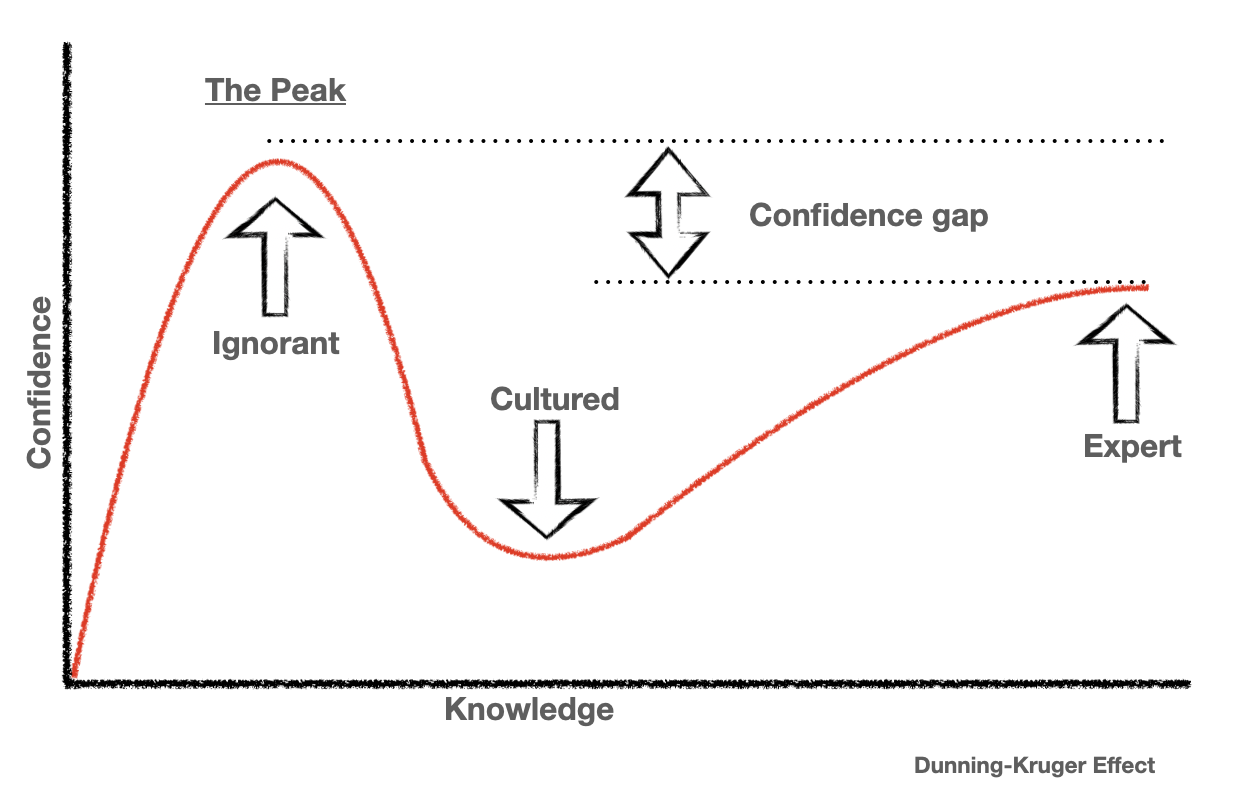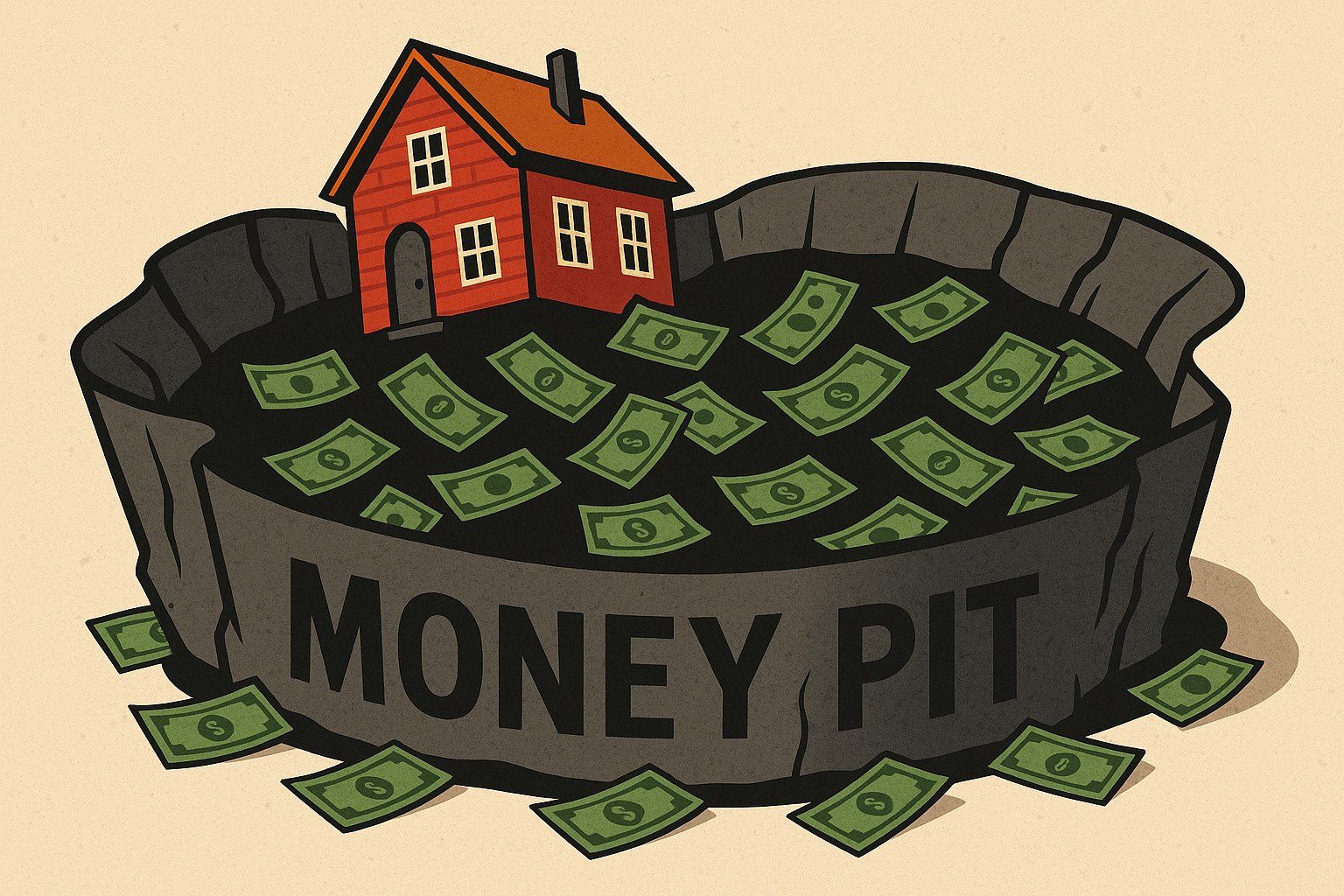The Dunning-Kruger Effect is a psychological phenomenon that refers to a cognitive bias in which people who are unskilled or incompetent tend to overestimate their abilities. The effect was first proposed by social psychologists David Dunning and Justin Kruger in a 1999 study published in the Journal of Personality and Social Psychology.
The Dunning-Kruger Effect is based on the idea that people who are incompetent in a particular area may lack the knowledge or expertise necessary to accurately assess their own abilities. As a result, they may overestimate their abilities and believe that they are more skilled or knowledgeable than they actually are. Conversely, people who are highly skilled or knowledgeable may underestimate their abilities and believe that they are less skilled or knowledgeable than they actually are.
Implications
One of the key implications of the Dunning-Kruger Effect is that people who are unskilled or incompetent may be unaware of their own limitations and may be more likely to make mistakes or poor decisions. This can be particularly problematic in areas such as medicine, finance, or engineering, where errors can have serious consequences.
In addition to the potential for poor decision-making, the Dunning-Kruger Effect can also lead to other negative outcomes, such as decreased motivation to learn or improve. People who believe they are already highly skilled may be less likely to seek out feedback or training, which can prevent them from improving their abilities over time.
One possible explanation for the Dunning-Kruger Effect is that people rely on their own internal sense of competence to judge their abilities, rather than external feedback or objective measures of performance. This can be particularly problematic if people lack the knowledge or expertise necessary to accurately assess their own abilities.
How to Mitigate
To mitigate the negative effects of the Dunning-Kruger Effect, it is important for individuals to seek out feedback and external validation of their abilities. This can involve seeking out mentorship, training, or objective measures of performance, such as evaluations or assessments. Additionally, individuals can work to develop a growth mindset, in which they view challenges and setbacks as opportunities to learn and grow, rather than as indications of their own incompetence.
The Dunning-Kruger Effect can impede success
The Dunning-Kruger Effect can impede success in several ways. Firstly, if individuals overestimate their abilities due to the cognitive bias, they may not put in the necessary effort or seek out the feedback they need to improve. They may believe that they already have the necessary skills or knowledge to succeed, and therefore may not invest the time or energy required to achieve their goals. This can result in poor performance or even failure, as they may not have the skills or knowledge required to achieve their desired outcomes.
Secondly, the Dunning-Kruger Effect can also lead to a lack of self-awareness, which can hinder success. If individuals are unaware of their own limitations, they may be more likely to make mistakes or poor decisions. They may not recognize when they need help or when they need to seek out additional resources or support. This can result in missed opportunities or setbacks that could have been avoided with greater self-awareness.
Finally, the Dunning-Kruger Effect can also lead to overconfidence, which can be a hindrance to success. If individuals believe that they are highly skilled or knowledgeable, they may take unnecessary risks or make decisions without fully considering the potential consequences. This can result in failures or mistakes that could have been avoided with greater caution or deliberation.
Overall, the Dunning-Kruger Effect can impede success by creating a false sense of confidence and competence that can lead to poor performance, lack of self-awareness, and overconfidence. To avoid these negative consequences, individuals should strive for accurate self-assessment and seek out feedback and external validation of their abilities. This can help them to identify their strengths and weaknesses, and to make better decisions and investments in their own growth and development.
A Point of No Return
An expert never returns to the same level of confidence for a number of reasons, including the fact that as they gain more experience and knowledge in a particular area, they become increasingly aware of their own limitations and the complexities of the subject matter. This awareness can lead to a more nuanced understanding of the subject matter, as well as a greater appreciation for the uncertainties and unknowns that are inherent in any field.
Another reason why an expert’s confidence level may decrease is that they become more aware of the limitations of their own expertise. As they gain more experience and encounter more complex problems, they may realize that their expertise is limited to a particular domain or set of circumstances. They may become more cautious in their assessments and more willing to seek out the opinions and insights of others who have different areas of expertise.
Finally, an expert’s confidence level may decrease because they become more aware of the uncertainties and unknowns that are inherent in any field. They may recognize that there are limits to what can be known or understood about a particular subject, and that there is always a risk of error or uncertainty in any assessment or prediction. This awareness can lead to a more cautious and nuanced approach to decision-making, as well as a greater willingness to acknowledge the limits of one’s own knowledge and expertise.
In conclusion, the Dunning-Kruger Effect is a psychological phenomenon that highlights the importance of accurate self-assessment and external feedback in skill development and decision-making. By recognizing the potential for bias in our own assessments of our abilities, we can take steps to mitigate the negative effects of this cognitive bias and improve our overall performance and decision-making.

 Reading time: 5 minutes
Reading time: 5 minutes




